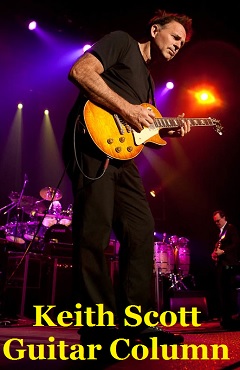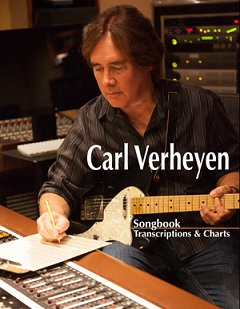Jim Vallance
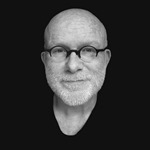
Photo credit : Otto Taikyn
Jim Vallance, the man who has co-written numerous worldwide hits with Bryan Adams, Aerosmith, Ozzy Osbourne to name a few, has revealed his personal accounts on working with his longest and most notable collaborator, Bryan Adams. Upon the 30th anniversary since the release of “Reckless” album, the pair has continued to entice savvy rock fans with their powerful musical works over the decades. MUSE ON MUSE asked Jim on his musical background, thoughts on songwriting and working with Bryan.
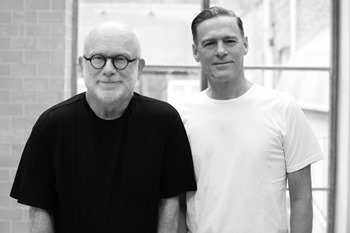
Photo credit : Bryan Adams
Interview / Text Mamoru Moriyama
Translation Yuichiro Chikamochi
Muse On Muse : How did you get into music? What got you interested in it?
Jim Vallance : As a young boy I had no interest in music. Instead, liked to watch sports on television — mostly hockey and baseball — and I enjoyed reading Batman and Superman comic books. In other words, my life was very normal for an eleven-year-old Canadian boy. Everything changed on February 9, 1964. That’s when I saw The Beatles on television. At that moment I knew I wanted to be a musician. It changed my life.
MM : Who were your early influences? Why were you attracted to them?
JV : My biggest influence was The Beatles. They still are! Their studio recordings were groundbreaking in terms of production, lyrics, instrumentation. No-one will ever surpass them.
MM : You are a multi-instrumentalist who plays the piano, guitar and drums. Tell us what got you started on different instruments. Also, were there any musicians who you were looking up to or trying to be while mastering them? What are your memories from the time?
JV : The Beatles inspired my choice of instruments. Drums was my first interest, because of Ringo. He’s still my favourite drummer in the world. I was playing drums in a band by the time I was 13. I started learning guitar around the same time. I already had a bit of piano knowledge, because I’d had lessons when I was 7 or 8 years old. So, at the age of 13 I was already playing three instruments.
MM : Were you playing in bands or with other people at the time? What kind of music were you playing then?
JV : My first band was called The Tremolones, with some guys from my school. We were predominantly an “instrumental” band, because no-one had the confidence to sing. We did “surf music”, songs like “Walk Don’t Run” and “Pipeline” by The Ventures.
MM : When did you start writing songs? Do you still remember the very first song you wrote?
JV : I wrote my first song when I was 16. It was called “Marjory”. It’s not very good … but it’s not too bad either!
MM : Did you formally study music theory while pursuing songwriting? From what perspective were you analyzing or studying the compositions of other artists who you were interested in?
JV : I had a bit of training on piano as a child, and I studied classical music for one year at university, but mostly I’m self-taught. I think some musicians have too much training … they can read notes on the page, but that means they’re using their eyes more than their ears. Reading music is an important skill, but it’s much more important to use your ears! That’s the skill you most need for songwriting.
MM : Please tell us in detail about the bands Sunshyne and Prism which you played with Bruce Fairbairn.
JV : Sunshyne was a Jazz-Rock-Classical fusion band. We didn’t get a chance to record in the studio, which is too bad, because we had some interesting arrangements. But our music wasn’t “radio friendly”. It wasn’t mainstream enough to get a recording contract. After Sunshyne I joined Prism. Prism was my first “studio” band, the first time my songs were recorded. When I listen to the album now, I hear so many mistakes. Well, not really “mistakes”, but things I would do differently. Bruce Fairbairn and I were young and inexperienced. We learned a lot together. Prism was our “school”, our testing ground.
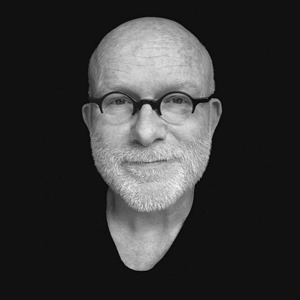
Photo credit : Otto Taikyn
MM : Pursuing your music career, why did you mainly choose to work with other people (songwriting and production) rather than working on your own projects?
JV : Some people are born to be performers, like Bryan Adams and Steven Tyler … and some people are born to be “behind the scenes, like me and Mutt Lange. I have to say, I prefer a private, quiet life. No spotlight for me, please.
MM : You’ve been working with Bryan Adams for many years. How did you get into working with him? What was your first impression of Bryan at work?
JV : I met Bryan in January 1978. He was 18 and I was 25. I was very impressed with his singing, his guitar playing, his energy. Plus, he had a lot of ambition, lots of ideas. He didn’t necessarily know how he was going to achieve everything, but he was determined to do it. And I was more than happy to join him on that journey.
MM : It marks the 30th anniversary since Bryan’s “Reckless” album came out. Do tell us about the things you remember or the memorable anecdotes from the time of the recording.
JV : Mostly I remember how much time we spent writing the songs. Twelve hours every day, for a year. It was a lot of work, but we also had a lot of fun.
MM : You’ve co-written many great songs with Bryan. How does the songwriting usually take place with him? Would you mind sharing with us about the songwriting process?
JV : Sometimes one of us will have an idea, a little piece of melody or maybe a few lyrics. Then we toss ideas back-and-forth, adding elements to the song. They call it song-“writing”, but it’s more like song-“building”. You just keep adding pieces until it’s finished. Like a puzzle.
MM : There are lots of impressive rhythm guitar parts and melodic guitar solos on Bryan’s songs. When we interviewed Keith Scott, he said they were played based on the demos of which Bryan and you had pre-recorded. Do you tend to elaborate the song arrangement even at the stage of pre-production?
JV : After we write a song, we always record a very detailed demo. You can hear some of our demos, which are “bonus tracks” on the Reckless 30th Anniversary CD. It was usually me playing keyboards, bass and drums, and Bryan on guitar and vocal. Bryan’s band would learn their parts from the demo recordings, but they would apply their own style to the performance. For example, on the demo for “Somebody”, I played bass and drums. Dave and Mickey more-or-less mirrored my demo performances on the album, but they played bass and drums much better than me!
MM : You’ve also worked with Aerosmith, Ozzy Osbourne, Heart and Alice Cooper. How do you make a start on writing a song that fits the image of each artist? And how do you take that further?
JV : It’s like doing research for a school project. I would study the past recordings and immerse myself in the “vibe” of the artist. Then, when you meet them, you discuss where they want to go, how they they want to evolve or change their sound from the previous recordings. Preparing to write with a band is a combination of premeditated study — prior to the writing session — and spontaneity once you’re in the writing studio.
MM : Of all the great songs you have written with various artists, tell us about some of the songs that are especially significant in your music career.
JV : “Summer of ’69” is an important song for me, because it still gets a lot of attention 30 years after we wrote it … lots of radio airplay everywhere in the world. I also have good memories of writing “Rag Doll” with Steven Tyler and Joe Perry. I also enjoyed the time I spent with Alice Cooper and Ozzy Osbourne. I’ve met some really nice people during my career.
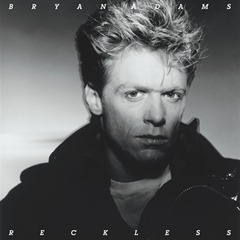
MM : Talents and inspirations are very important in songwriting perhaps. On one hand, when it comes to writing thousands of songs on a regular basis, that simply wouldn’t last. Being a professional songwriter, what do you think is the most requisite in constantly writing great songs? How do you maintain yourself or keep yourself going?
JV : It has to be fun. I enjoy the creative process, I enjoy the “work”, but I also like to laugh a lot, which is easy to do when you’re in a room with Steven or Ozzy or Alice. The work gets done, but it’s fun at the same time. Bryan and I have found a great balance between work and fun. We spend long hours in the studio, it’s hard work, but we find lots of way to make each other laugh.
MM : Thanks to the recent technology advancement, there are a lot of useful tools for making/recording music. Have there been any changes in the way you create music compared to before?
JV : There’s lots of new and helpful technology, but you know, when I’m writing songs, I still pick up my acoustic guitar.
MM : Any tips for those who want to become songwriters like you?
JV : Young songwriters should listen to music from different generations … Elvis, Buddy Holly, Beatles, Stones, Police, U2. Also, read a lot of books. Never believe that songwriting is easy, because it’s very hard work. I’ve been doing it for 45 years, and I still find it difficult and challenging. But I’m learning new things every day, hopefully getting better at it.
MM : What are your future plans? Any upcoming events?
JV : Bryan and I are working on his next album, with Jeff Lynne producing (ELO). I think it’s our best song-writing since Reckless.
MM : Please give a message to the Japanese fans.
JV : I’ve visited Japan several times and I love it. It’s modern and ancient, at the same time. Everyone is so friendly in Japan. Amazing music fans!
Jim Vallance official site http://www.jimvallance.com/
